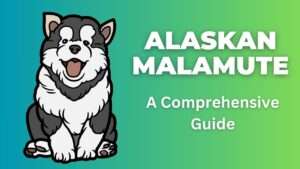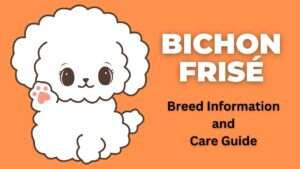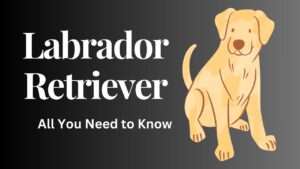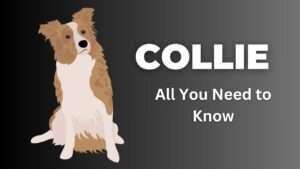Welcome to the enchanting world of Poodles, where elegance meets intelligence and charm! Have you ever wondered why these graceful creatures are a favorite among dog lovers worldwide? From their distinctive haircuts to their remarkable trainability, prepare to embark on a journey delving into the fascinating realm of Poodles.
Contents Overview
Breed Overview: Poodle
Size:
- Poodles come in three sizes: Standard, Miniature, and Toy.
- Standard Poodle: Stands over 15 inches tall at the shoulder.
- Miniature Poodle: Stands between 10 and 15 inches tall.
- Toy Poodle: Stands under 10 inches tall.
Appearance:
- Poodles are renowned for their curly, hypoallergenic coats that come in various solid colors like white, black, apricot, and more.
- Their distinctive haircuts, such as the “Puppy Clip” and the iconic “Lion Clip,” contribute to their elegant appearance.
- They have dark, oval-shaped eyes and long, pendant ears that hang close to their head.
Life Span:
- Poodles generally live long, healthy lives.
- Standard Poodles: Typically live between 10 to 12 years.
- Miniature and Toy Poodles: Often live longer, averaging 12 to 15 years or more with proper care and nutrition.
Poodles are not just a pretty face; their intelligence, versatility, and affectionate nature make them beloved companions for families and individuals alike.
History and Origins of Poodle
The Poodle, with its distinguished appearance and regal demeanor, has a history as rich and intriguing as its luxurious coat. Here’s a glimpse into the captivating origins of this beloved breed:
- European Roots:
- Germany: Contrary to popular belief, the Poodle did not originate in France but rather in Germany, where it was known as the “Pudel,” derived from the German word “pudeln,” meaning “to splash.”
- Early Roles: Poodles were originally bred as water retrievers, adept at retrieving waterfowl for hunters in marshy areas and lakes.
- Renaissance Renaissance:
- Royal Favor: Poodles gained immense popularity during the Renaissance era, particularly among European nobility and aristocracy.
- Fashionable Companions: They were often depicted in lavish portraits alongside their noble owners, serving not only as skilled hunting companions but also as fashionable and sophisticated pets.
- Versatile Performers:
- Circus Stars: Poodles’ intelligence, trainability, and agility made them sought-after performers in circuses and traveling shows during the 18th and 19th centuries.
- Entertainment Industry: From circus acts to stage performances, Poodles showcased their remarkable abilities and entertained audiences worldwide.
- Evolution of Appearance:
- Iconic Haircuts: Over time, Poodles’ coats evolved from functional trims for water retrieval to elaborate and stylized cuts, such as the “Lion Clip” and the “Continental Clip,” which became synonymous with the breed’s distinctive appearance.
- Adaptation: Their unique hairstyles not only served aesthetic purposes but also provided practical benefits, keeping their joints and vital organs warm during cold water retrievals.
- Modern-Day Popularity:
- Companion Dogs: While Poodles’ hunting days may be behind them, their popularity as beloved companions continues to thrive.
- Versatility: Poodles excel in various roles, from therapy and service dogs to loyal family pets and competitive athletes in dog sports like agility and obedience trials.
The Poodle’s journey from humble beginnings as a skilled water retriever to a cherished companion and versatile performer reflects its enduring charm, intelligence, and adaptability through the ages.
Temperament and Personality of Poodle
The Poodle is not just a pretty face; behind its elegant appearance lies a heart of gold and a personality that endears it to all who encounter it. Here’s a closer look at the temperament and personality traits that make Poodles beloved companions:
- Intelligent and Trainable:
- Top of the Class: Poodles consistently rank among the most intelligent dog breeds, thanks to their sharp minds and eagerness to learn.
- Quick Learners: They excel in obedience training and thrive on mental stimulation, making them versatile performers in various canine sports and activities.
- Affectionate and Loyal:
- Heartfelt Bonds: Poodles form deep bonds with their families and are known for their unwavering loyalty and devotion.
- Velcro Dogs: They often become Velcro dogs, sticking close to their loved ones and seeking out affection and attention at every opportunity.
- Playful and Energetic:
- Young at Heart: Despite their regal appearance, Poodles possess a playful and mischievous side that endears them to people of all ages.
- Boundless Energy: They thrive on physical activity and enjoy engaging in games and play sessions, whether it’s a spirited game of fetch or a romp in the park.
- Social and Friendly:
- Social Butterflies: Poodles are typically outgoing and friendly, enjoying the company of both familiar faces and new friends alike.
- Good with Others: They tend to get along well with other pets and are generally welcoming to strangers, making them excellent companions for households with multiple animals or frequent visitors.
- Alert and Protective:
- Keen Watchdogs: Poodles have a keen sense of awareness and make excellent watchdogs, alerting their families to any potential intruders or unusual activity.
- Gentle Guardians: While they may sound the alarm when necessary, Poodles are not typically aggressive and are known for their gentle and patient nature, especially with children.
From their sharp intellect and loving disposition to their playful antics and unwavering loyalty, Poodles possess a winning combination of qualities that make them cherished members of countless families worldwide. Whether as a devoted companion, a skilled performer, or a steadfast protector, the Poodle’s irresistible charm leaves an indelible mark on the hearts of all who have the privilege of knowing them.
Exercise and Training Needs of Poodle
Ensuring the health and happiness of your Poodle involves more than just providing food and shelter; it also entails meeting their physical and mental exercise requirements. Here’s a comprehensive guide to fulfilling your Poodle’s exercise and training needs:
Exercise Requirements:
- Daily Activity: Poodles are active and energetic dogs that require daily exercise to keep them physically and mentally stimulated.
- Playtime: Engage in interactive play sessions such as fetch, tug-of-war, or agility training to burn off excess energy.
- Outdoor Adventures: Take your Poodle for daily walks or hikes to explore the outdoors and satisfy their natural curiosity.
Training Needs:
- Consistent Training: Poodles thrive on mental stimulation and benefit from consistent training sessions to reinforce good behavior and obedience.
- Positive Reinforcement: Utilize positive reinforcement techniques such as treats, praise, and clicker training to motivate and reward desired behaviors.
- Socialization: Expose your Poodle to various people, animals, and environments from a young age to help them develop into well-rounded and confident individuals.
Special Considerations:
- Intelligence Challenges: Poodles are highly intelligent dogs that may become bored or restless without adequate mental stimulation. Provide puzzle toys, interactive games, and training exercises to keep their minds engaged.
- Avoid Overexertion: While Poodles have high energy levels, be mindful not to overexert them, especially in hot weather or during intense physical activities. Allow for plenty of rest and hydration breaks.
- Variety is Key: Keep your Poodle’s exercise routine varied and interesting to prevent boredom and maintain their enthusiasm. Rotate between different activities and environments to keep them engaged and stimulated.
Training Tools:
- Leash and Harness: Invest in a sturdy leash and comfortable harness to ensure safe and enjoyable walks with your Poodle.
- Training Treats: Use high-value treats to reward your Poodle during training sessions and reinforce positive behaviors.
- Interactive Toys: Provide a variety of interactive toys and puzzle games to keep your Poodle mentally stimulated and entertained.
Professional Guidance:
- Professional Training: Consider enrolling your Poodle in obedience classes or hiring a professional dog trainer to help address specific behavior issues and refine their training skills.
- Veterinary Care: Regular check-ups with a veterinarian are essential to monitor your Poodle’s health and address any medical concerns that may affect their exercise and training routine.
Poodle's Coat: Type and Length
The Poodle’s distinctive coat is one of its most iconic features, contributing to its elegance and charm. Here’s a closer look at the types and lengths of Poodle coats:
Coat Types:
- Curly Coat (Most Common): The curly coat is the classic Poodle look, characterized by tight, ringlet-like curls that form all over the body. This type of coat is dense and woolly in texture, providing excellent insulation and protection from the elements.
- Corded Coat: In some cases, Poodle coats may be allowed to cord, forming long, thin cords similar to dreadlocks. This style requires meticulous maintenance to prevent matting and ensure the cords remain clean and healthy.
- Wavy Coat: While less common than the curly coat, some Poodles may have wavy or loosely curled hair. This type of coat has a softer texture and may require less grooming compared to the tightly curled variety.
Coat Lengths:
- Standard Poodle: Standard Poodles typically have longer coats that require regular grooming to prevent matting and tangling. The length of the coat can vary depending on the desired grooming style, ranging from short trims to floor-length show coats.
- Miniature and Toy Poodle: Miniature and Toy Poodles also have long coats that require frequent grooming to maintain their appearance and prevent matting. However, their smaller size may make grooming more manageable compared to Standard Poodles.
Grooming Needs:
- Regular Maintenance: Regardless of coat type and length, all Poodles require regular grooming to keep their coats clean, healthy, and free of mats.
- Brushing: Daily brushing is essential to prevent matting and tangling, especially for curly coats. Use a slicker brush or comb to remove debris and tangles from the coat.
- Professional Grooming: Many Poodle owners opt for professional grooming every 4-6 weeks to maintain their dog’s coat in top condition. Professional groomers can provide expert trimming, shaping, and styling to achieve the desired look.
Coat Care Tips:
- Hygiene: Keep your Poodle’s coat clean and free of debris by bathing them regularly with a gentle dog shampoo.
- Moisturization: Use a high-quality conditioner or grooming spray to keep your Poodle’s coat soft, shiny, and moisturized.
- Ear Care: Poodles are prone to ear infections due to their floppy ears. Clean your Poodle’s ears regularly and check for signs of infection, such as redness or odor.
- Nutrition: A balanced diet rich in essential nutrients is crucial for maintaining a healthy coat. Consult with your veterinarian to ensure your Poodle is receiving the proper nutrition for optimal coat health.
Grooming and Care for Your Poodle
Grooming plays a crucial role in maintaining the health, appearance, and well-being of your Poodle’s luxurious coat. Here’s a comprehensive guide to grooming and caring for your Poodle:
- Daily Brushing:
- Curly Coat Maintenance: Poodles have curly coats that require daily brushing to prevent matting and tangling.
- Slicker Brush: Use a slicker brush to gently remove knots and tangles from your Poodle’s coat, starting from the ends and working your way up to the roots.
- Comb Through: Follow up with a fine-tooth comb to ensure thorough detangling and to remove any remaining debris or loose hair.
- Regular Baths:
- Frequency: Bathe your Poodle every 4-6 weeks to keep their coat clean and healthy.
- Use Dog-Safe Shampoo: Use a mild, hypoallergenic dog shampoo to avoid irritating your Poodle’s sensitive skin.
- Thorough Rinse: Rinse your Poodle’s coat thoroughly after shampooing to remove all traces of soap and prevent skin irritation.
- Professional Grooming:
- Schedule Regular Grooming Sessions: Consider scheduling regular appointments with a professional groomer every 4-6 weeks to maintain your Poodle’s coat in top condition.
- Trimming and Styling: Professional groomers can expertly trim, shape, and style your Poodle’s coat according to your preferences, whether it’s a classic “Puppy Clip” or an elaborate “Lion Clip.”
- Ear Care:
- Regular Cleaning: Poodles are prone to ear infections due to their floppy ears. Clean your Poodle’s ears weekly with a veterinarian-recommended ear-cleaning solution to remove wax and debris.
- Check for Signs of Infection: Monitor your Poodle’s ears for signs of infection, such as redness, swelling, or a foul odor, and consult your veterinarian if you notice any abnormalities.
- Dental Hygiene:
- Brush Teeth Regularly: Brush your Poodle’s teeth at least 2-3 times a week to prevent plaque buildup and maintain good oral hygiene.
- Dental Chews: Provide dental chews or toys designed to promote dental health and reduce tartar and plaque accumulation.
- Nail Care:
- Regular Trimming: Trim your Poodle’s nails every 2-4 weeks to prevent them from becoming too long and causing discomfort or difficulty walking.
- Use Caution: Exercise caution when trimming your Poodle’s nails to avoid cutting them quickly, which can cause pain and bleeding.
- Nutrition and Hydration:
- Balanced Diet: Feed your Poodle a balanced diet rich in essential nutrients to support overall health and coat condition.
- Hydration: Ensure your Poodle has access to clean, fresh water at all times to prevent dehydration and maintain healthy skin and coat.
- Veterinary Care:
- Regular Check-ups: Schedule regular check-ups with your veterinarian to monitor your Poodle’s health and address any medical concerns promptly.
- Vaccinations and Preventive Care: Stay up-to-date on vaccinations and preventive care measures recommended by your veterinarian to keep your Poodle healthy and happy.
Shedding Level of Poodles
Poodles are renowned for their low-shedding coats, making them a popular choice for individuals with allergies or those who prefer a cleaner home. Here’s what you need to know about the shedding level of Poodles:
Hypoallergenic Coat:
- Minimal Shedding: Poodles have a single-layered, curly coat that sheds minimally, if at all. This is due to their unique coat structure, which traps loose hair and dander, preventing it from being released into the environment.
- Hypoallergenic Qualities: The low shedding nature of Poodles makes them hypoallergenic, meaning they produce fewer allergens than other breeds, making them suitable for allergy sufferers.
Regular Grooming:
- Maintenance Required: While Poodles shed very little, their curly coats require regular grooming to prevent matting and tangling.
- Daily Brushing: Daily brushing with a slicker brush or comb is essential to remove loose hair and prevent knots and tangles from forming.
- Professional Grooming: Many Poodle owners opt for professional grooming every 4-6 weeks to maintain their dog’s coat in top condition and to achieve the desired grooming style.
Seasonal Shedding:
- Minimal Seasonal Shedding: Poodles may experience minimal seasonal shedding during the change of seasons, typically in the spring and fall.
- Regular Grooming Helps: Regular grooming can help manage seasonal shedding by removing loose hair and preventing it from accumulating in the home.
Environmental Factors:
- Indoor Living: Poodles are well-suited to indoor living environments, as their low-shedding coats help keep indoor spaces cleaner and reduce the need for frequent vacuuming.
- Regular Baths: Regular bathing can help remove loose hair and dander from your Poodle’s coat, further minimizing shedding and allergens in the home.
Common Health Issues in Poodles
While Poodles are generally healthy and long-lived dogs, like all breeds, they are susceptible to certain health conditions. Being aware of these common health issues can help you provide the best care for your Poodle. Here are some of the health concerns commonly seen in Poodles:
- Hip Dysplasia:
- Description: Hip dysplasia is a hereditary condition where the hip joint doesn’t develop properly, leading to joint instability and arthritis.
- Symptoms: Limping, reluctance to move, difficulty getting up or climbing stairs.
- Prevention: Selecting a reputable breeder who screens their breeding stock for hip dysplasia can help reduce the risk.
- Progressive Retinal Atrophy (PRA):
- Description: PRA is a degenerative eye disease that eventually leads to blindness. It is inherited and has no cure.
- Symptoms: Night blindness, dilated pupils, bumping into objects.
- Prevention: Responsible breeding practices and regular veterinary check-ups can help detect and manage PRA in its early stages.
- Gastric Dilatation-Volvulus (GDV), or Bloat:
- Description: Bloat is a life-threatening condition where the stomach twists and fills with gas, cutting off blood flow.
- Symptoms: Restlessness, pacing, distended abdomen, unsuccessful attempts to vomit.
- Prevention: Feed smaller, frequent meals, avoid exercise immediately after eating, and consider a gastropexy surgery to prevent twisting in at-risk dogs.
- Sebaceous Adenitis:
- Description: Sebaceous adenitis is an immune-mediated skin condition that affects the sebaceous glands, leading to dry, scaly skin and hair loss.
- Symptoms: Hair loss, flaky skin, odor, and secondary skin infections.
- Treatment: Management often involves medicated baths, topical treatments, and sometimes immune-suppressing medications.
- Epilepsy:
- Description: Epilepsy is a neurological disorder characterized by recurrent seizures.
- Symptoms: Seizures may vary in severity and duration, ranging from mild twitching to full-body convulsions.
- Treatment: Anticonvulsant medications can help manage and reduce the frequency and severity of seizures in affected dogs.
- Addison’s Disease:
- Description: Addison’s disease, or hypoadrenocorticism, occurs when the adrenal glands do not produce enough hormones.
- Symptoms: Weakness, lethargy, vomiting, diarrhea, and collapse.
- Treatment: Lifelong hormone replacement therapy is necessary to manage Addison’s disease effectively.
- Dental Issues:
- Description: Poodles are prone to dental problems such as periodontal disease, tooth decay, and gum infections.
- Symptoms: Bad breath, swollen gums, difficulty eating, and tooth loss.
- Prevention: Regular dental care, including brushing, dental chews, and professional cleanings, can help prevent dental issues.
Drooling Level of Poodles
Poodles are known for their elegant appearance and low-maintenance coats, but when it comes to drooling, they’re on the minimal end of the spectrum. Here’s what you need to know about the drooling level of Poodles:
Minimal Drooling:
- Natural Trait: Poodles are not known for excessive drooling, making them an ideal choice for individuals who prefer a cleaner, less messy dog.
- Dry Mouth: Poodles typically have a dry mouth, which means they produce less saliva compared to breeds with looser lips or jowls.
Factors Influencing Drooling:
- Individual Variations: While Poodles, in general, are not heavy droolers, there can be individual variations within the breed. Some Poodles may drool slightly when excited or anticipating food, but it is usually minimal.
- Health Conditions: Excessive drooling can sometimes be a sign of dental problems, mouth infections, or other underlying health issues. If your Poodle suddenly starts drooling more than usual, it’s essential to consult with a veterinarian to rule out any medical concerns.
Maintenance Tips:
- Regular Dental Care: Good oral hygiene is essential for preventing dental issues that could lead to increased drooling. Brush your Poodle’s teeth regularly and schedule professional dental cleanings as recommended by your veterinarian.
- Monitor for Health Changes: Keep an eye on your Poodle’s overall health and behavior. If you notice any sudden changes in drooling behavior, appetite, or activity level, it’s essential to seek veterinary attention promptly.
Nutrition and Diet for Poodles
Providing your Poodle with a balanced and nutritious diet is essential for maintaining their overall health, energy levels, and well-being. Here’s a comprehensive guide to nutrition and diet for Poodles:
- High-Quality Dog Food:
- Complete and Balanced: Choose a premium-quality dog food that is labeled as “complete and balanced” to ensure your Poodle receives all the essential nutrients they need for optimal health.
- Life Stage Specific: Select a dog food formulated for your Poodle’s life stage (puppy, adult, senior) to meet their specific nutritional requirements.
- Protein:
- Lean Protein Sources: Poodles thrive on a diet rich in lean protein sources such as poultry, fish, and eggs, which provide essential amino acids for muscle maintenance and growth.
- Avoid Fillers: Avoid dog foods that contain excessive fillers and by-products, as these may lack the necessary protein quality and can contribute to digestive upset.
- Healthy Fats:
- Omega-3 and Omega-6 Fatty Acids: Incorporate sources of healthy fats such as salmon oil or flaxseed into your Poodle’s diet to support skin health, coat luster, and overall immune function.
- Moderation is Key: While fats are essential for your Poodle’s diet, be mindful of portion sizes to prevent weight gain and obesity.
- Carbohydrates:
- Complex Carbohydrates: Choose dog foods that contain complex carbohydrates such as brown rice, sweet potatoes, and oats, which provide sustained energy and fiber for digestive health.
- Limit Simple Carbs: Minimize the inclusion of simple carbohydrates like corn, wheat, and soy, as these can contribute to digestive issues and allergies in some dogs.
- Fruits and Vegetables:
- Nutrient-Rich Additions: Incorporate fruits and vegetables into your Poodle’s diet as nutrient-rich additions and natural sources of vitamins, minerals, and antioxidants.
- Safe Options: Safe options include carrots, green beans, blueberries, and apples, but always avoid feeding toxic foods like grapes, onions, and garlic.
- Portion Control:
- Monitor Serving Sizes: Be mindful of portion sizes and feeding frequency to prevent overfeeding and obesity, which can lead to various health issues in Poodles.
- Follow Feeding Guidelines: Follow the feeding guidelines provided on your dog food packaging, but adjust portion sizes based on your Poodle’s age, activity level, and individual metabolism.
- Hydration:
- Access to Clean Water: Ensure your Poodle has access to clean, fresh water at all times to prevent dehydration and support overall health and hydration.
- Veterinary Guidance:
- Regular Check-ups: Schedule regular check-ups with your veterinarian to monitor your Poodle’s weight, overall health, and dietary needs.
- Consultation for Special Needs: If your Poodle has specific health concerns or dietary restrictions, consult with your veterinarian to develop a customized nutrition plan tailored to their needs.
Living Environment and Housing for Poodles
Creating a comfortable and safe living environment is essential for the well-being and happiness of your Poodle. Whether you live in an apartment, a house with a yard, or somewhere in between, here are some factors to consider when housing your Poodle:
- Indoor Living:
- Comfortable Space: Poodles are adaptable dogs that can thrive in various living situations, but they generally prefer to live indoors with their human family.
- Temperature Control: Ensure your home is kept at a comfortable temperature year-round, as Poodles are sensitive to extreme heat and cold.
- Designated Rest Areas: Provide your Poodle with a cozy bed or crate in a quiet area of your home where they can rest undisturbed.
- Outdoor Access:
- Secure Outdoor Space: If you have a yard or outdoor space, make sure it is securely fenced to prevent your Poodle from wandering off or encountering potential hazards.
- Supervised Time: While Poodles enjoy outdoor activities and playtime, they should always be supervised when outdoors to ensure their safety and prevent them from getting into mischief.
- Exercise and Activity:
- Daily Walks: Poodles require daily exercise to stay healthy and happy. Aim for at least one brisk walk per day, along with opportunities for playtime and mental stimulation.
- Indoor Activities: On days when outdoor exercise is limited, engage your Poodle in indoor activities such as interactive games, obedience training, or puzzle toys to keep them mentally and physically stimulated.
- Socialization:
- Interaction with Others: Poodles are social dogs that enjoy the company of their human family members as well as other dogs and pets.
- Play Dates: Arrange play dates with other friendly dogs or visits to dog parks to provide opportunities for socialization and mental stimulation.
- Safety Measures:
- Pet-Proofing: Pet-proof your home by securing cabinets, electrical cords, and other potential hazards to prevent accidents and injuries.
- Toxic Substances: Keep household cleaners, medications, and other toxic substances out of reach of your Poodle to prevent accidental ingestion.
- Veterinary Care:
- Regular Check-ups: Schedule regular veterinary check-ups to monitor your Poodle’s health and address any medical concerns promptly.
- Vaccinations and Preventive Care: Stay up-to-date on vaccinations, flea and tick prevention, and heartworm medication to keep your Poodle healthy and protected against common diseases and parasites.
Barking Level of Poodles
Poodles are known for their intelligence, adaptability, and affectionate nature, but what about their barking tendencies? Here’s what you need to know about the barking level of Poodles:
- Alertness:
- Naturally Alert: Poodles have a keen sense of awareness and are naturally alert, which may lead them to bark in response to various stimuli in their environment.
- Watchful Guardians: They make excellent watchdogs and will often alert their owners to the presence of strangers or unusual sounds with a bark.
- Vocal Communication:
- Communication Tool: Like all dogs, Poodles use barking as a form of communication to express their needs, desires, and emotions.
- Expressive Barks: Poodles may bark to seek attention, express excitement, communicate discomfort or anxiety, or simply engage in vocal play with their human companions.
- Training and Socialization:
- Training Opportunities: With proper training and socialization from a young age, you can help manage and control your Poodle’s barking behavior.
- Positive Reinforcement: Use positive reinforcement techniques to teach your Poodle when it is appropriate to bark and when to remain quiet, rewarding desired behavior with treats and praise.
- Environmental Factors:
- Stimulus Response: Poodle barking can be triggered by various environmental stimuli such as other dogs barking, unfamiliar noises, or changes in their surroundings.
- Reducing Triggers: Minimize potential triggers by providing a secure and stable environment for your Poodle and addressing any underlying sources of stress or anxiety.
- Individual Variations:
- Breed Variation: While Poodles are not typically excessive barkers compared to some other breeds, individual dogs may vary in their barking tendencies.
- Genetic Factors: Genetics, temperament, and past experiences can all influence a Poodle’s propensity to bark.
- Management Strategies:
- Exercise and Mental Stimulation: Provide regular exercise and mental stimulation to help alleviate boredom and reduce excessive barking.
- Behavioral Training: Work with a professional dog trainer or behaviorist to address excessive barking through positive reinforcement training techniques.
- Environmental Enrichment: Create a calm and stimulating environment for your Poodle with interactive toys, puzzle games, and enrichment activities to keep their minds engaged and minimize boredom-related barking.
Trainability Level of Poodles
Poodles are renowned for their intelligence, trainability, and eagerness to please, making them highly trainable dogs. Here’s what you need to know about the trainability level of Poodles:
- Intelligence:
- Top of the Class: Poodles consistently rank among the most intelligent dog breeds, possessing keen problem-solving abilities and quick learning skills.
- Versatile Learners: They excel in various types of training, from basic obedience commands to advanced tricks and agility exercises.
- Eagerness to Please:
- People-Pleasers: Poodles have a strong desire to please their owners and thrive on positive reinforcement training methods.
- Responsive to Feedback: They are highly responsive to praise, treats, and other rewards, which makes training sessions enjoyable and productive for both the dog and the owner.
- Adaptability:
- Versatile Skills: Poodles are versatile dogs that can adapt to a wide range of training activities and environments.
- Quick Learners: They pick up new commands and behaviors quickly, which makes them suitable for various roles such as therapy dogs, service dogs, and competitive sports participants.
- Consistency and Patience:
- Key to Success: Consistency and patience are essential when training a Poodle, as they respond best to clear communication and positive reinforcement.
- Structured Training: Establish a consistent training routine with structured sessions focusing on one command or behavior at a time.
- Socialization:
- Foundation for Training: Early socialization is crucial for Poodles to develop into well-rounded and confident dogs.
- Exposure to Various Stimuli: Introduce your Poodle to different people, animals, environments, and experiences from a young age to build their confidence and reduce the likelihood of behavioral issues later in life.
- Professional Guidance:
- Expert Assistance: Consider enrolling your Poodle in obedience classes or working with a professional dog trainer to hone their skills and address specific training goals.
- Specialized Training: Depending on your Poodle’s interests and abilities, you may explore specialized training activities such as agility, rally, or scent work to provide mental stimulation and challenge.
Socialization and Interaction for Poodles
Socialization is crucial for Poodles to develop into well-adjusted, confident, and friendly companions. Here’s a comprehensive guide to socialization and interaction for Poodles:
- Early Start:
- Puppyhood Socialization: Start socializing your Poodle puppy as early as possible, ideally between the ages of 8 to 16 weeks when they are most receptive to new experiences.
- Positive Experiences: Introduce your puppy to a variety of people, animals, environments, sounds, and stimuli in a positive and controlled manner.
- Exposure to Various Stimuli:
- People: Encourage interactions with people of all ages, genders, and appearances to help your Poodle become comfortable and confident around different individuals.
- Other Animals: Arrange playdates with other friendly dogs and expose your Poodle to cats, small animals, and livestock under supervision to promote positive social interactions.
- Environments: Take your Poodle on outings to different places such as parks, beaches, pet stores, and busy streets to acclimate them to various sights, sounds, and smells.
- Positive Reinforcement:
- Reward-Based Training: Use positive reinforcement techniques such as treats, praise, and toys to reward your Poodle for calm, confident, and friendly behavior during socialization encounters.
- Consistency: Be consistent in your approach to socialization and ensure that interactions are always positive and enjoyable for your Poodle.
- Training and Obedience:
- Basic Commands: Teach your Poodle basic obedience commands such as “sit,” “stay,” and “come” to establish communication and control in social situations.
- Leash Training: Practice leash manners and polite greetings to prevent leash-related reactivity and promote calm and controlled behavior when meeting new people and dogs.
- Supervised Play:
- Structured Play Sessions: Arrange supervised play sessions with other dogs of similar size and temperament to provide opportunities for socialization and exercise in a safe and controlled environment.
- Monitoring Body Language: Pay attention to your Poodle’s body language during play to ensure that interactions remain positive and non-threatening.
- Continued Socialization:
- Lifelong Process: Socialization is an ongoing process that should continue throughout your Poodle’s life to maintain their social skills and prevent behavioral issues.
- Exposure to New Experiences: Continue exposing your Poodle to new people, animals, environments, and experiences regularly to reinforce positive social behaviors and reduce fear or anxiety.
Choosing a Responsible Breeder or Rescue Organization for a Poodle
Whether you’re considering adding a Poodle to your family through a breeder or adopting from a rescue organization, it’s essential to choose a reputable source that prioritizes the health, well-being, and ethical treatment of the dogs in their care. Here’s a guide to help you make an informed decision:
- Research:
- Breeder Directories: Start your search by consulting reputable breeder directories such as the American Kennel Club (AKC) or the Poodle Club of America (PCA).
- Rescue Organizations: Explore reputable rescue organizations and shelters that specialize in Poodles or mixed-breed dogs.
- Screening Process:
- Interview Potential Breeders: Reach out to breeders or rescue organizations to inquire about their breeding practices, housing conditions, and health screening protocols.
- Ask Questions: Don’t hesitate to ask questions about the breeder’s experience, health guarantees, genetic testing, and socialization practices for puppies.
- Health Testing:
- Health Clearances: Responsible breeders conduct health screenings for hereditary conditions common in Poodles, such as hip dysplasia, progressive retinal atrophy (PRA), and von Willebrand’s disease.
- Documentation: Request documentation of health clearances for both the parents and puppies to ensure they have been screened for potential genetic health issues.
- Socialization and Environment:
- Puppy Socialization: Inquire about the socialization protocols implemented by the breeder or rescue organization to ensure that puppies are exposed to various stimuli and experiences from an early age.
- Living Conditions: Visit the breeder’s facility or rescue organization to assess the cleanliness, safety, and overall environment in which the dogs are raised or housed.
- References and Reviews:
- References: Request references from previous puppy buyers or adopters to gain insight into their experiences with the breeder or rescue organization.
- Online Reviews: Research online reviews and testimonials from other customers to gauge the reputation and reliability of the breeder or rescue organization.
- Adoption Process:
- Application Process: Expect to complete an adoption application and undergo a screening process to ensure that you are a suitable match for the dog.
- Home Visit: Some rescue organizations may conduct home visits to assess your living environment and ensure it is suitable for a Poodle.
- Support and Follow-up:
- Post-Adoption Support: Choose a breeder or rescue organization that offers ongoing support and guidance after you bring your Poodle home, including advice on training, health care, and behavioral issues.
- Health Guarantee: Ensure that the breeder or rescue organization provides a health guarantee or adoption contract outlining their responsibilities and recourse in the event of any health or behavioral issues.
Adoption Considerations for a Poodle
Adopting a Poodle can be a rewarding experience, but it’s essential to consider several factors to ensure that it’s the right decision for you and your lifestyle. Here are some key considerations to keep in mind:
- Commitment:
- Lifelong Responsibility: Adopting a Poodle is a long-term commitment, as they can live for 12-15 years or more. Ensure that you are ready to commit to caring for a dog for their entire lifespan.
- Time and Attention:
- Time Investment: Poodles require regular exercise, grooming, and companionship. Ensure that you have enough time to dedicate to meeting their physical and emotional needs.
- Social Interaction: Poodles are social dogs and thrive on human companionship. Consider whether your schedule allows for ample time spent with your Poodle each day.
- Grooming Needs:
- Coat Maintenance: Poodles have a unique coat that requires regular grooming to prevent matting and tangling. Be prepared to invest time and effort into grooming your Poodle, or budget for professional grooming services.
- Space and Living Arrangements:
- Living Environment: Consider whether your living space is suitable for a Poodle. While they adapt well to apartment living, they still need enough space to move around and exercise.
- Outdoor Access: Access to secure outdoor space is beneficial for Poodles to engage in outdoor activities and bathroom breaks.
- Financial Considerations:
- Financial Responsibility: Owning a Poodle comes with financial expenses, including food, veterinary care, grooming supplies, and potential unforeseen medical expenses.
- Budgeting: Ensure that you have the financial resources to provide for your Poodle’s needs throughout their life.
- Training and Socialization:
- Training Needs: Poodles are intelligent and trainable dogs, but they require consistent training and socialization from an early age to become well-behaved companions.
- Commitment to Training: Be prepared to invest time and effort into training your Poodle, or enlist the help of a professional trainer if needed.
- Adoption vs. Breeder:
- Rescue Adoption: Consider adopting a Poodle from a rescue organization or shelter. By adopting, you provide a loving home to a dog in need and potentially save a life.
- Reputable Breeder: If you choose to purchase a Poodle from a breeder, ensure that they are reputable and prioritize the health and well-being of their dogs.
- Compatibility:
- Lifestyle Match: Consider whether a Poodle’s temperament, energy level, and grooming requirements align with your lifestyle and preferences.
- Family Dynamics: If you have children or other pets, ensure that a Poodle is compatible with your family dynamics and lifestyle.
Compatibility of Poodles with Children and Other Pets
Poodles are known for their friendly and affectionate nature, making them generally compatible with children and other pets. However, as with any breed, it’s essential to consider individual temperament, socialization, and supervision to ensure harmonious relationships. Here’s what to keep in mind:
- Temperament:
- Gentle Disposition: Poodles typically have a gentle and patient temperament, which can make them well-suited for households with children.
- Playful Nature: They often enjoy playing and interacting with children, especially when introduced to them at a young age.
- Socialization:
- Early Exposure: Proper socialization from a young age is crucial for Poodles to learn how to interact appropriately with children and other pets.
- Positive Experiences: Expose your Poodle to children of different ages, as well as other animals, to help them develop positive associations and behaviors.
- Supervision:
- Active Supervision: Always supervise interactions between your Poodle and children or other pets, especially during the initial introduction phase.
- Teach Boundaries: Educate children on how to interact gently and respectfully with the Poodle, including avoiding rough play or pulling on ears and tails.
- Training:
- Basic Obedience: Teach your Poodle basic obedience commands, such as “sit,” “stay,” and “leave it,” to help them understand boundaries and respond appropriately in different situations.
- Consistency: Consistent training and positive reinforcement are key to shaping desired behaviors and preventing any potential issues with children or other pets.
- Energy Level:
- Adaptability: Poodles are adaptable dogs that can adjust their energy level to match the activity level of their human family members.
- Playtime: They enjoy engaging in play and activities with children, but they also appreciate quiet time and relaxation.
- Compatibility with Other Pets:
- Sociability: Poodles generally get along well with other dogs and pets, especially when properly socialized and introduced gradually.
- Supervised Introductions: Introduce your Poodle to other pets slowly and under controlled conditions to prevent conflicts and ensure a positive relationship.
- Individual Variations:
- Personality Differences: Keep in mind that individual Poodles may have varying temperaments and preferences when it comes to interacting with children and other pets.
- Observation: Pay attention to your Poodle’s body language and behavior to gauge their comfort level and make adjustments as needed.
Breed-Specific Legislation and Regulations
Breed-specific legislation (BSL) targeting Poodles is relatively rare, as Poodles are not typically associated with aggressive behavior or high bite rates. However, some regions may have restrictions on certain dog breeds, including Poodles, based on size or appearance. For example, in some areas, there may be regulations regarding the ownership of Standard Poodles due to their size, while Miniature and Toy Poodles may face fewer restrictions. Poodle owners need to familiarize themselves with local laws and regulations regarding pet ownership to ensure compliance and responsible dog ownership.
Famous Dogs of the Poodle
- Rin Tin Tin: While Rin Tin Tin is best known as a German Shepherd, one of his descendants, Rin Tin Tin IV, was a Poodle who appeared in films and television shows during the mid-20th century.
- Harpo Marx’s Poodle: Harpo Marx, of the Marx Brothers comedy team, was often seen with his beloved Poodle companion, named simply “Pinky.”
- Lulu the Poodle: Lulu, owned by author John Steinbeck, accompanied him on his travels and was a constant companion during his writing process.
- Tiny the Wonder Dog: Tiny, a Toy Poodle, gained fame as “Tiny the Wonder Dog” in the 1950s for his impressive tricks and performances in circuses and television shows.
- Piff the Magic Dragon’s Mr. Piffles: Mr. Piffles, a rescue Poodle, gained fame as the canine sidekick to magician Piff the Magic Dragon, appearing in numerous stage shows and television appearances.
Bottom Line
In summary, the Poodle is a versatile and intelligent breed known for its elegant appearance, hypoallergenic coat, and friendly temperament. Whether as a loyal companion, skilled performer, or loving family pet, the Poodle’s adaptability and trainability make it a beloved breed worldwide. From its history as a hunting dog to its modern roles in entertainment and therapy, the Poodle continues to captivate hearts and make a positive impact in the lives of those fortunate enough to call it their own.


























+ There are no comments
Add yours